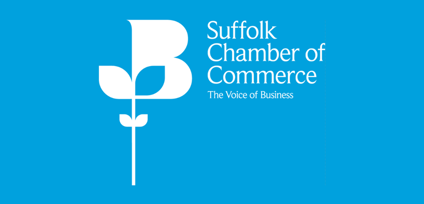Suffolk Chamber statement on the latest inflation figures

“This further leap in headline inflation underscores the intensifying pressure felt by businesses - compounded by endemic labour and increasing skills shortages – with no let-up in sight.
“Suffolk businesses have been reporting increasing price pressures for well over a year and certainly well before the economic impacts of the war in Ukraine became apparent. Suffolk Chamber research shows that increasing numbers, especially those unable to pass these onto customers, are beginning to see their margins squeezed, their cash flow reduced and so are starting to wind in their investment in training and in plant and machinery. Unless this trend is arrested and quickly, this will inevitably lead to a slow contraction in business activity and sentiment at the very point when the UK economy as a whole has returned to pre-pandemic levels.
“In a series of compelling testimonies, a number of local businesses yesterday outlined these and other challenges in a face-to-face meeting with Andrew Bailey, the governor of the Bank of England at a Suffolk Chamber summit, hosted by Birketts in Ipswich.
“What became crystal clear from these conversations was the limitations of monetary policy and especially interest rates at this stage of an inflationary surge, especially given the governor’s assertion that 80% of such pressures are global in origin.
“That is why we asked him to reinforce our requests to Government to look at using some of the domestic fiscal and labour supply-side levers at their disposal. In the case of the former, we are calling for an emergency pro-business budget that reverses the recent illogical hike in Employer NI contributions and a temporary reduction in VAT on businesses’ energy bills from 20% to 5%.
“In the case of the latter, we are looking to the Home Office to use its immigration powers to increase the number of short-term working visas in those strategic sectors that have been most impacted by the current labour shortages.
“In short, Suffolk Chamber is mindful that no matter how resilient and versatile Suffolk companies are, the build-up of these pressures coming so soon after the pandemic cannot be addressed by them alone. Lower taxes and a more nuanced approach to the current labour market are vital.”

